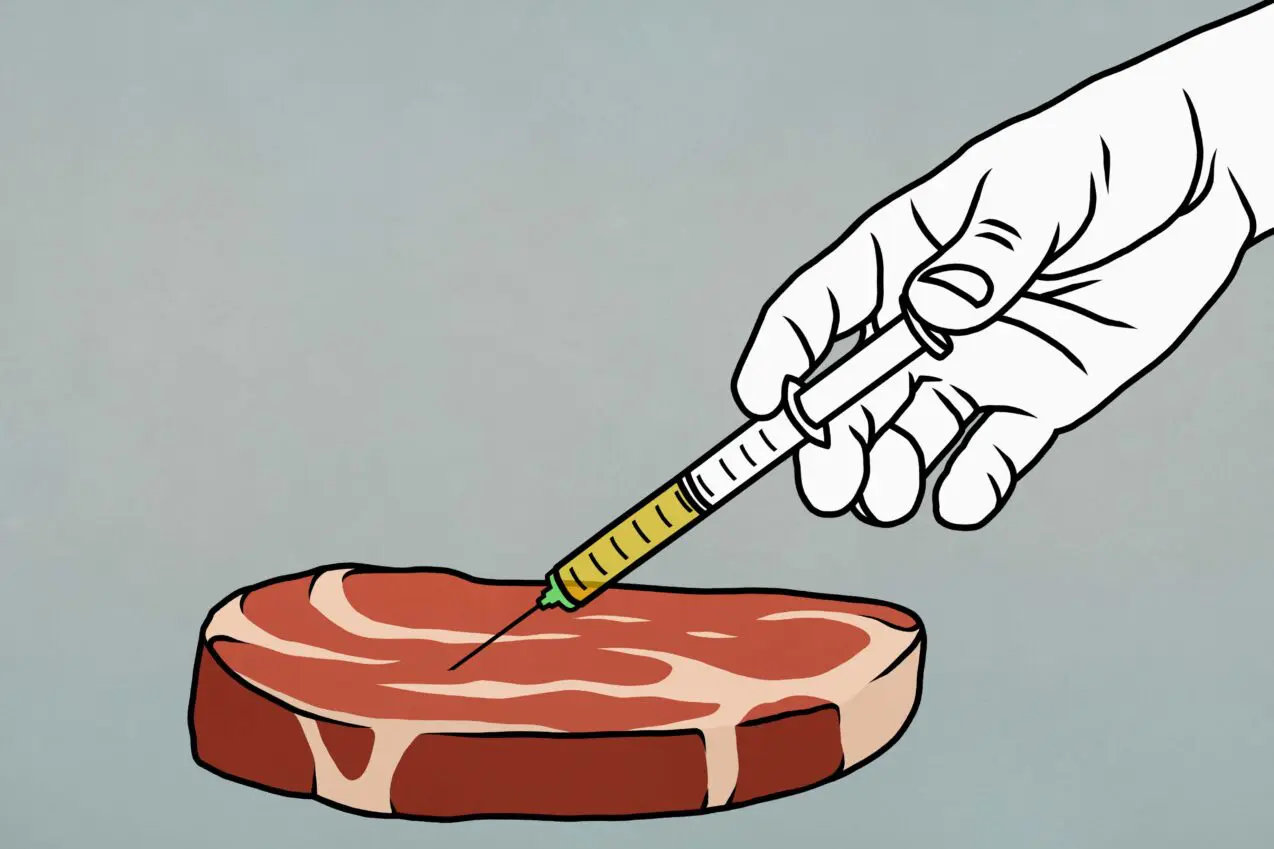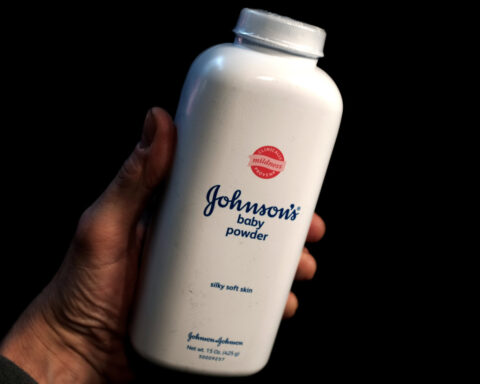As Robert F. Kennedy Jr., President-elect Donald Trump's selection for the nation's top health position, pledges to remove chemical additives from America's food supply, research reveals that a significant regulatory gap has allowed food manufacturers to introduce numerous unapproved substances into the American diet without proper oversight from the Food and Drug Administration.
An analysis by the Environmental Working Group found that 98.7% of approximately 766 new food chemicals introduced into the food supply since 2000 did not receive FDA approval. Instead, food manufacturers have been utilizing a regulatory loophole that permits them to determine independently whether their ingredients are "generally recognized as safe," or "GRAS."
"The average consumer would absolutely assume that new preservatives, ingredients, and flavors in food are all checked out by the FDA before they arrive on our supermarket shelves," said Pieter Cohen, associate professor of medicine at Harvard Medical School, who recently co-authored a report on this regulatory gap in the New England Journal of Medicine. "That's what's commonly believed. But it's a false narrative."
The GRAS designation was originally created to exempt common household ingredients with an established history of safe use, such as oil, vinegar, baking soda, and traditional spices, from rigorous safety reviews. However, under current regulations, companies can bypass the FDA's premarket approval process by making their own determinations about an ingredient's safety.
Thomas Galligan, principal scientist for food additives and supplements at the Center for Science in the Public Interest, expressed concern about this system. "The food industry is deciding by itself without any input from the FDA what is safe for us to eat," he said. "Most consumers would be shocked to know that the FDA has essentially handed the reins over to the food industry."
The FDA acknowledged this limitation in a statement, noting that federal law does not require companies to obtain premarket approval for ingredients meeting GRAS criteria. The agency also confirmed that it lacks the authority to mandate that companies provide information about GRAS ingredients used in their products.
The potential dangers of this regulatory system were highlighted two years ago when nearly 400 people became ill after consuming a ground beef substitute product from Daily Harvest, a food subscription service. The incident resulted in more than 130 hospitalizations, with at least 39 individuals requiring gallbladder removal.
Investigators identified tara flour, a protein-rich ingredient derived from South American tree seeds, as the likely cause. Despite the absence of published toxicological studies and FDA evaluation, the ingredient had entered the market through the GRAS loophole. The FDA later declared tara flour an "unapproved" food additive that failed to meet GRAS standards.
Cohen emphasized that this system's weakness lies in its inability to detect long-term health effects. "If a new food ingredient does not make people immediately sick, and people are just getting heart disease and cancer, then no one is going to trace it back to the companies," he said.
Several chemical additives currently in use have been linked to adverse health effects. Butylated hydroxyanisole (BHA), a preservative found in breakfast cereals, potato chips, and various other processed foods, has been classified by the National Toxicology Program as "reasonably anticipated to be a human carcinogen" based on animal studies.
In scientific studies, carboxymethyl cellulose, an emulsifier present in ice cream, salad dressings, and various processed foods, has been associated with gut microbiome disruption and inflammation. Similarly, polysorbates, another group of emulsifiers, have been linked to intestinal inflammation and adverse effects on gut microbiome composition.
Recent research from the Cleveland Clinic has indicated that sugar alcohols like erythritol and xylitol, commonly used as low-calorie sweeteners, may increase the risk of cardiovascular events by promoting blood clot formation. Additionally, propylparaben, a preservative used in various baked goods, has been found by researchers to potentially interfere with hormone signaling and affect fertility.
In response to these concerns, state and federal lawmakers are taking action. California became the first state to prohibit four specific food additives linked to cancer risk and hyperactivity in children: red dye No. 3, brominated vegetable oil, potassium bromate, and propylparaben.
New York lawmakers have proposed legislation to ban these additives and three others: titanium dioxide, azodicarbonamide, and butylated hydroxyanisole. The bill would also require companies to disclose their GRAS determinations and safety assessment methods for additives used in products sold within the state.
Anna Kelles, a nutritional epidemiologist and New York assemblymember who sponsored the bill, emphasized its focus on transparency. "All this bill is saying is, 'Hey, if you want to use this chemical in New York State then we would like to see your proof that this is GRAS, and once you have done that then you can go on your way,'" she said.
At the federal level, Representative Rosa DeLauro, Democrat of Connecticut, has introduced the Toxic Free Food Act, which aims to close the GRAS loophole. The proposed legislation would require FDA approval before new chemical additives could enter the food supply and mandate public disclosure of safety data.
The Institute of Food Technologists, an industry group, has acknowledged the need for greater transparency in the additive approval process. Anna Rosales, the organization's senior director of government affairs and nutrition, stated, "IFT believes it is essential to recognize that both pre- and post-market assessments should ensure end-to-end transparency in the approval of ingredients and foods. Transparency is critical to building public trust and ensuring consumer confidence in the U.S. food supply."
The FDA maintains that food companies bear responsibility for ensuring ingredient safety before market introduction. "The food industry is responsible for ensuring the safety of the ingredients they use in foods before they go to market. All uses of ingredients considered GRAS, food additives, color additives, and food contact substances must meet the same safety standard — reasonable certainty of no harm," an FDA spokesperson said.
As state and federal initiatives progress, advocates push for stricter food additives oversight. "The FDA has a mandate from Congress to ensure the safety of our food supply, and it simply cannot do that if it does not know what is in our food and whether or not chemicals came to market through a rigorous safety assessment," Galligan said.

 Israeli attorney general orders probe into report that alleged Netanyahu's wife harassed opponents
Israeli attorney general orders probe into report that alleged Netanyahu's wife harassed opponents
 Peru declares environmental emergency after oil spill
Peru declares environmental emergency after oil spill
 The strike against Amazon is over but Teamsters warn: ‘Stay tuned’
The strike against Amazon is over but Teamsters warn: ‘Stay tuned’
 Bad Bunny announces a new album, 'Debí Tirar Más Fotos'
Bad Bunny announces a new album, 'Debí Tirar Más Fotos'
 Column-Why US Congress restored Social Security benefits for public-sector retirees: Mark Miller
Column-Why US Congress restored Social Security benefits for public-sector retirees: Mark Miller
 Penn State offensive coordinator Kotelnicki's creativity has the Nittany Lions humming in the CFP
Penn State offensive coordinator Kotelnicki's creativity has the Nittany Lions humming in the CFP
 Pat Riley says the Miami Heat will not trade Jimmy Butler
Pat Riley says the Miami Heat will not trade Jimmy Butler
 Discover the alarming lack of FDA oversight in food additives regulation. Learn how the GRAS loophole allows untested chemicals into food supply.
Discover the alarming lack of FDA oversight in food additives regulation. Learn how the GRAS loophole allows untested chemicals into food supply.







